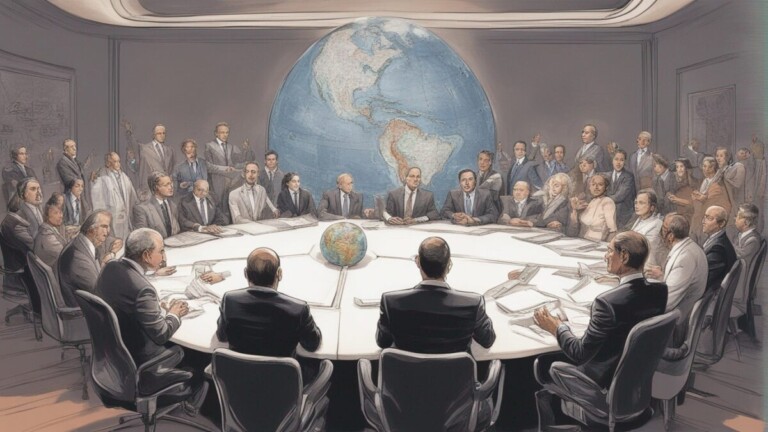The New World Order Conspiracy Theory is a widely circulated narrative that asserts the existence of a secretive global elite orchestrating a plan to establish a totalitarian world government. This theory claims that powerful individuals and organizations are working covertly to control international affairs, manipulate economies, and shape societies. This article delves into the origins of the New World Order theory, explores its key elements, examines the cultural and political context, evaluates its impact on public perception, and analyzes the implications of such conspiracy narratives.
Origins and Evolution of the New World Order Theory
Seeds of Suspicion
The concept of a New World Order has its roots in historical fears of centralized power and the consolidation of authority. Throughout history, fears of secret societies and hidden agendas have periodically emerged, often in times of political uncertainty or upheaval.
Modern Resurgence
The modern New World Order theory gained prominence in the latter half of the 20th century. It was fueled by geopolitical shifts, economic changes, and the emergence of globalization, which some interpreted as signs of a larger, orchestrated plan.
Key Elements of the New World Order Theory
Global Control
The central claim of the New World Order theory is that a small, secretive group seeks to establish a single, all-powerful world government. This group is often said to manipulate world events, political leaders, and economic systems to achieve its goals.
Manipulation and Deception
Conspiracy theorists argue that the alleged elites use various means of manipulation and deception, including controlling media, finance, and information dissemination, to shape public opinion and further their agenda.
Cultural and Political Context
The Fear of Loss of Sovereignty
The New World Order theory flourished during times of geopolitical change and uncertainty, where concerns about national sovereignty, economic instability, and technological advancements fueled suspicions of hidden forces at play.
Media and Information Landscape
The advent of the internet and digital media provided a platform for the rapid spread of conspiracy theories. Online forums, social media, and alternative news sources became breeding grounds for discussions about the New World Order.
Impact on Public Perception and Society
Erosion of Trust
The New World Order theory can erode trust in institutions and political leaders, leading to increased skepticism and disillusionment. It can foster a sense of powerlessness and fuel the belief that individuals have little control over their own lives.
Polarization and Fragmentation
Conspiracy theories like the New World Order theory can contribute to societal polarization, as individuals gravitate towards like-minded communities that reinforce their beliefs. This can hinder constructive dialogue and cooperation.
Implications of Conspiracy Narratives
Distortion of Reality
Conspiracy theories often distort reality by presenting complex events in simplistic and exaggerated ways. This can lead to misunderstandings and misinterpretations of historical events and power dynamics.
Diversion from Real Issues
Conspiracy theories can divert attention from genuine societal issues and challenges by offering a simplified narrative that assigns blame to a secretive group. This can hinder productive discussions and problem-solving.
